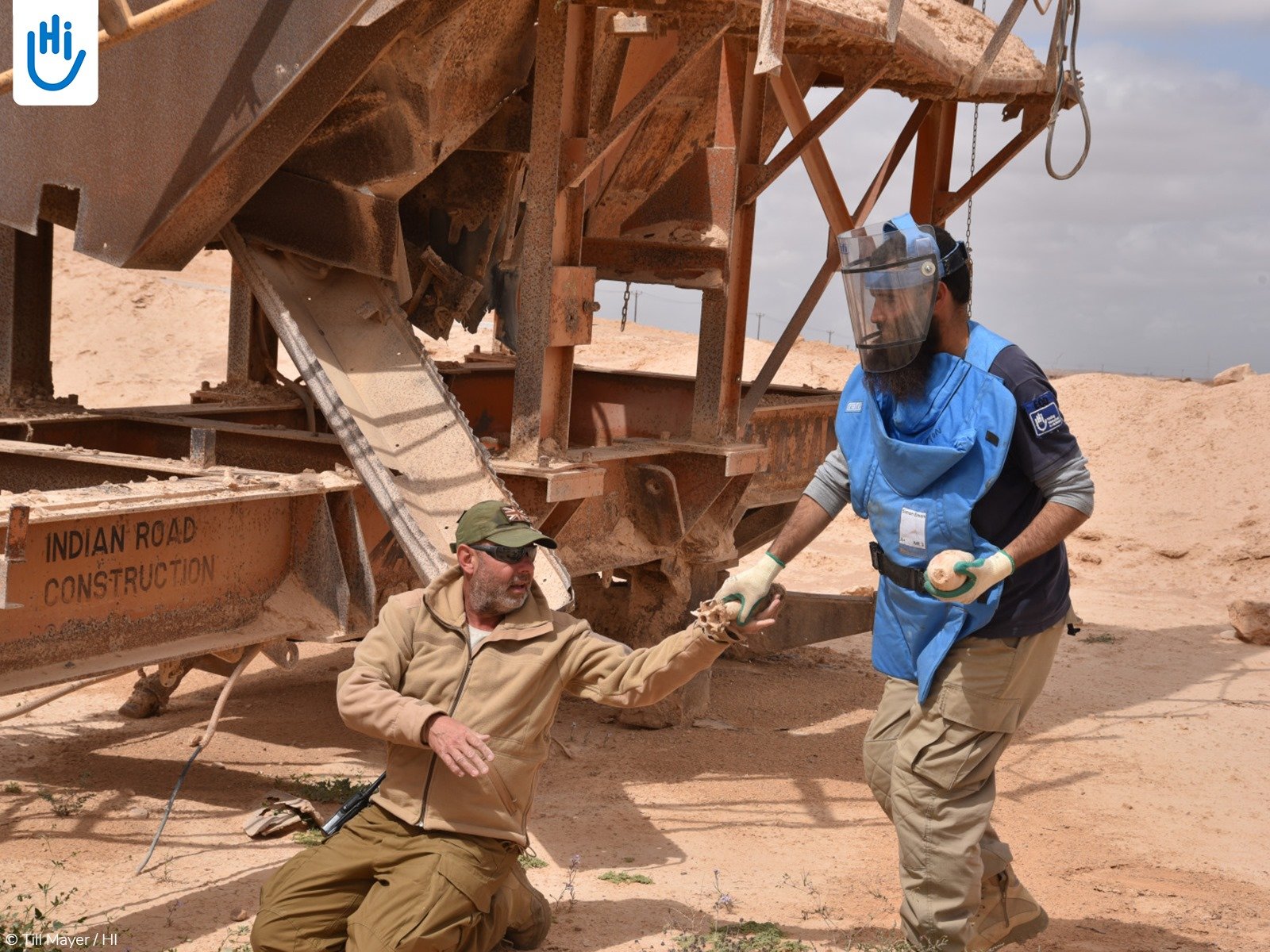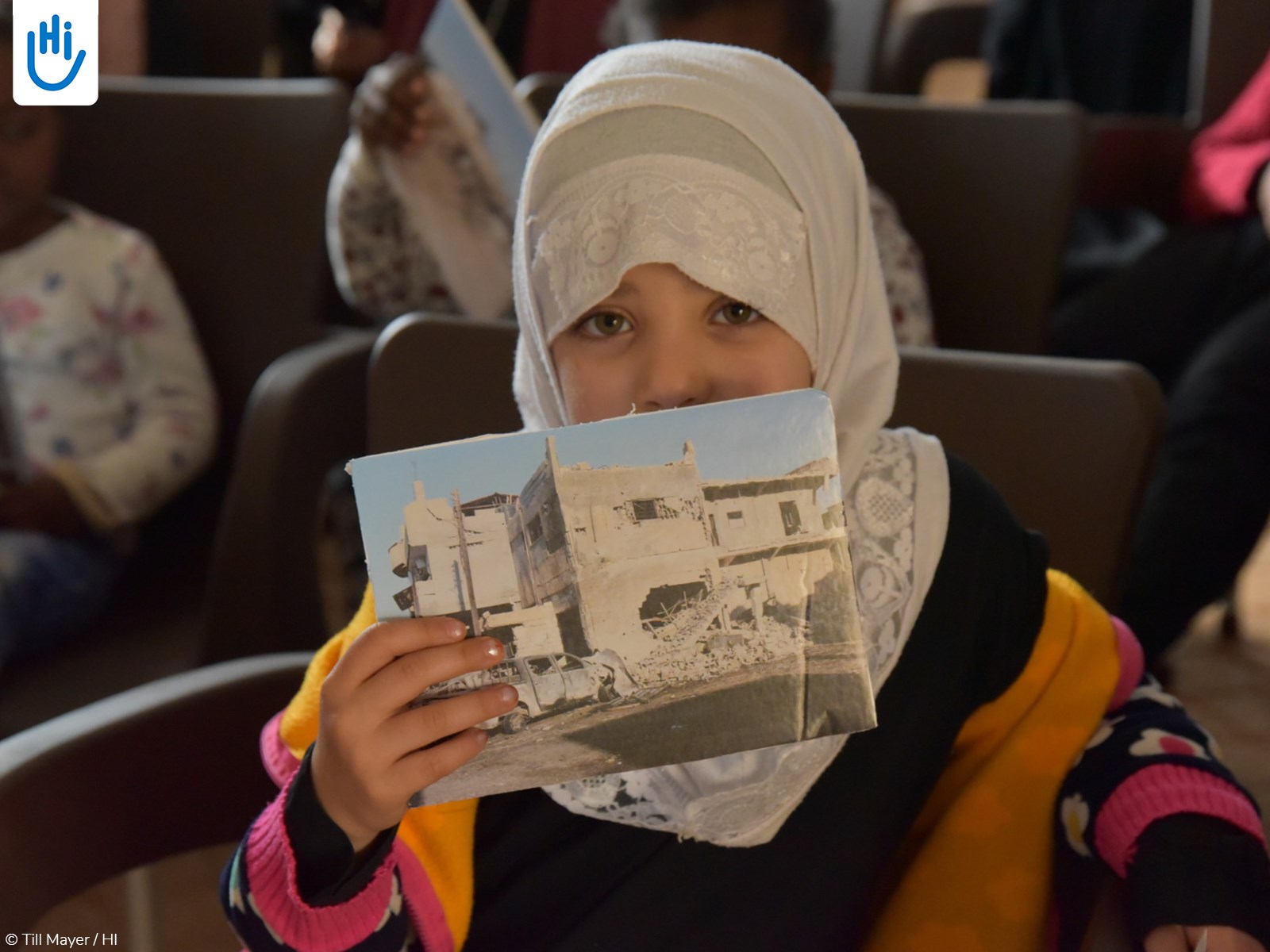Clearing explosive weapons & keeping communities safe in Libya
Since the fall of the Gaddafi regime, Libya, especially Misrata and Tawergha, has been wracked by violence between rival militia and the uncontrolled influx of weapons, creating a situation of ongoing insecurity. There are incredible amounts of remnants of war that remain a threat to the population, especially in Tawergha. People are slowly starting to return to the ghost-town.

HI team, Clearance operations (EOD), on the right Simon Elmont, HI EOD Field Manager in Libya. | © Till Mayer/HI
Humanity & Inclusion started its clearance operation in 2011, but the civil war interrupted our mission between 2015 and 2017. In Tawergha, since November 2019, our teams have destroyed nearly 450 items, weighing two tons. Between 2012 and 2014, Humanity & Inclusion's clearance teams destroyed 122,273 unexplored unexploded ordnance, RPGs, missiles, and ammo, leftover from the civil war. “We also destroyed WW2 mines,” says Simon Elmont, Humanity & Inclusion's EOD Field Manager in Libya.

Soon after the war ended, Humanity & Inclusion's team started providing risk education sessions to children at school and in the local mosques. Our staff explained the risks of explosive weapons of war and what to do should they spot any. "When children know what a grenade, ammunition, or an RPG look like, they are safer."





